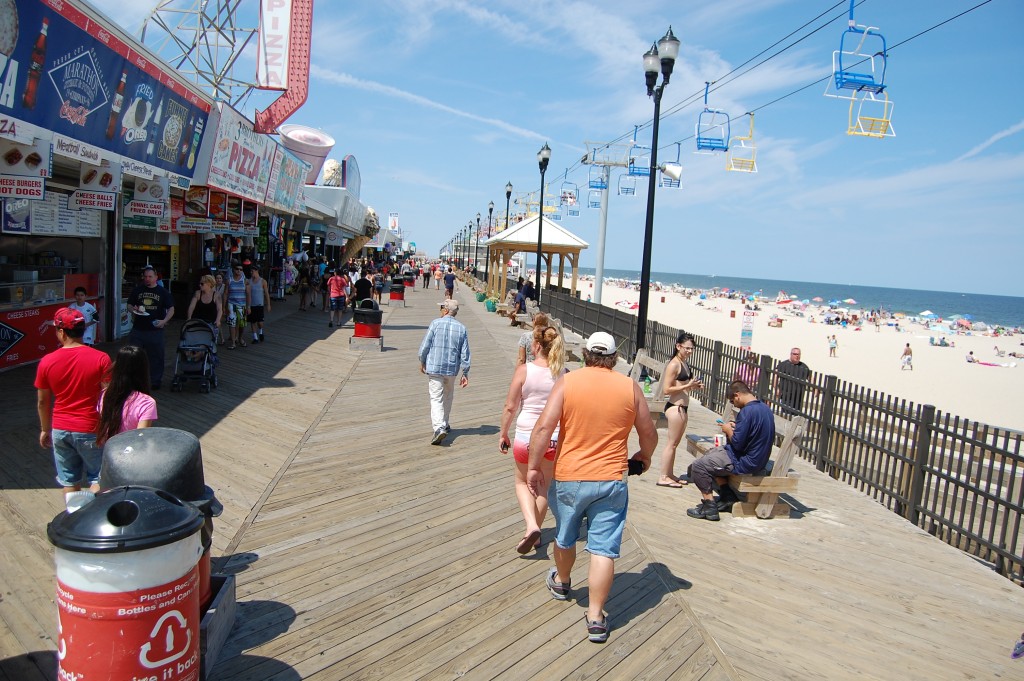Shore area businesses will be forced to either raise prices, cut workers or close down entirely in the wake of the state’s proposed law that gradually increases the minimum wage to $15 per hour, the state lawmakers who represent the boardwalk towns of Seaside Heights and Point Pleasant Beach said Friday.
The Shore will take a decidedly hard hit from the law because many young workers are likely to spurn the traditional summer job – where wages will increase at a slower pace – in favor of what is expected to be higher-paying jobs at non-tourism-based businesses. As a consequence, tourism-based businesses that often operate on low margins and must generated revenue in a short amount of time could find themselves overwhelmed by labor costs.
If the legislation is signed into law next week as expected, beginning Jan. 1, 2020, seasonal businesses need to pay their employees at least $10.30 an hour, and then increase that wage each year until it reaches $15 an hour in 2026.
|
|
“Restaurants, bars, boardwalks and amusement parks on the Jersey Shore will be the hardest hit,” added Assemblyman Dave Wolfe. “Even with the delayed increase, the mom and pop shops on the boardwalk will have to pay a competitive wage to attract young workers, who will undoubtedly choose to find higher-paying jobs at a supermarket or coffee shop chain instead. This is devastating to the Jersey Shore economy no matter how you slice it.”
Wolfe, along with his 10th district GOP colleagues state Sen. James Holzapfel and Assemblyman Gregory P. McGuckin, blasted the proposal, saying it would hurt the Shore area the most – doubling down on a separate tax on rental properties that is expected to increase the cost of a Jersey Shore vacation.
“This bill is yet another attempt by Governor Murphy to force residents and business owners out of the state,” said Holzapfel. “Small businesses are the backbone of the Jersey Shore and this wage increase will send ripple effects throughout our Shore economy.”
Tourism was a $42 billion industry in New Jersey last year, about half of which was derived from the four Shore counties. The legislators see the minimum wage increase and tax on short-term rentals as a one-two punch in an area that has already lost tens of millions of dollars in school funding over the last year and has yet to recover its entire tax ratable base since Superstorm Sandy struck in 2012.
“Last year, Governor Murphy took the egregious step of forcing short-term beach rentals to cope with a ‘shore tax,'” said McGuckin, a former Toms River councilman, whose hometown includes Ortley Beach and the Ocean Beach neighborhoods. “Now he’s taking a direct shot at small business owners, who will not be able to afford to their pay employees unless they increase their prices. Vacationing with your family to the Jersey Shore use to be an affordable getaway, until now.”
“It’s a death sentence for our economy and our business climate as a whole,” he continued. ”

Advertisement

Police, Fire & Courts
South Toms River Man Charged in Violent Murder of Wife

Police, Fire & Courts
Toms River Man, 36, Charged With Failing to Register Under Megan’s Law









